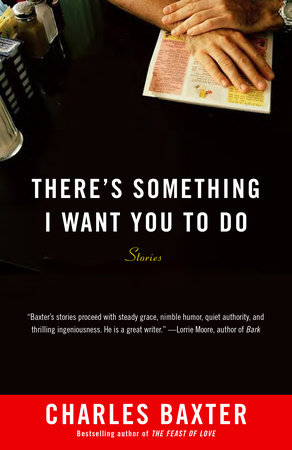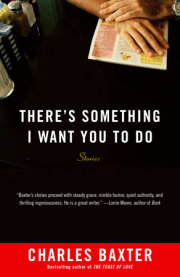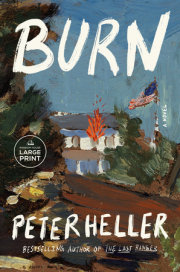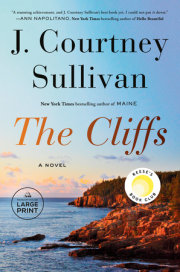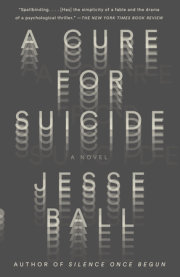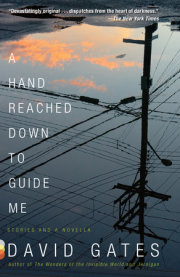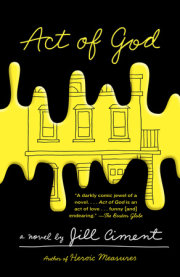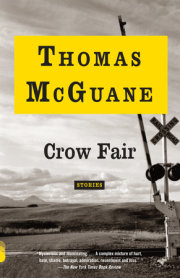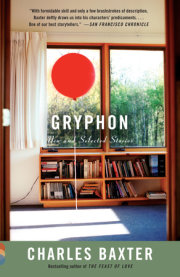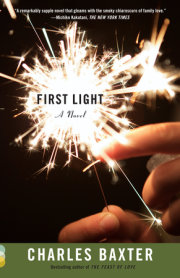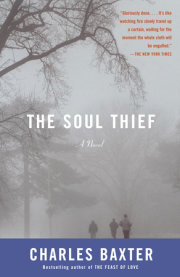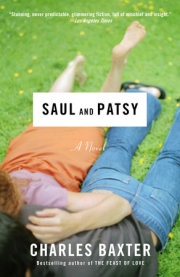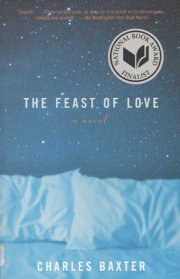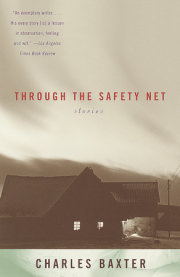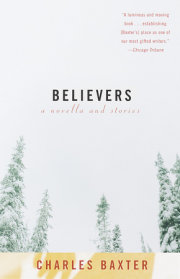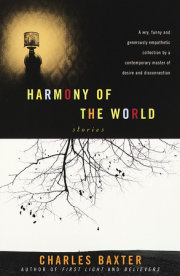Three weeks later, on his way out to his evening stroll, Benny passed two of his friends, the lesbians from down the hall, Donna and Ellie, just outside the building. They referred to themselves alphabetically as “the D and the E,” and tonight they were walking their keeshonds. Engaged in conversation, they waved to him as he crossed the block. He waved back, not wanting to interrupt them. When the two women were talking together, the bond between them—heads turned in a mutual gaze, slightly bowed, the conversation quiet and slow and half-smiling—seemed more intimate than sex. Their friendship, no, their love, resembled . . . what? Prayer, or some other category that Benny didn’t currently believe in.
By the time he reached the Washington Avenue Bridge across the Mississippi, he had worked up a light sweat. He planned to cross the river, turn around, and then head back. He would shower before bed and be asleep by midnight. Tonight the joggers and lovers were out in force, along with the shabby old men who held out their hands for money. A panhandle was like a scream: you never knew what was appropriate, how much help to offer, what to do.
Crossing the bridge on the pedestrian level, he counted the number of people on foot. He liked taking inventories; solid figures reassured him. About seven people were out tonight, including one guy with a backpack sprinting in Benny’s direction, two people strolling, and a young woman with a vaguely studenty appearance who stood motionless, leaning against the railing and staring down at the river. The sodium lights gave them all an orange-tan tint. The young woman tapped her fingers along the guardrail, took out a cell phone, and after taking a picture of herself, dropped the phone into the river below. She licked her lips and laughed softly as the phone disappeared into the dark.
Benny stopped. Something was about to happen. As he watched, she gathered herself up and with a quick athletic movement hoisted herself over so that she was standing on the railing’s other side with her arms braced on the metalwork behind her. If she released her arms and leaned forward, she would plunge down into the river. One jogger went past her without noticing what she was doing. What
was she doing? Benny hurried toward her.
Seeing him out of the corner of her eye, she turned and smirked.
“Stop!” he commanded. “Wait. Don’t!” He wasn’t sure what to say. “What are you doing? Who are you?”
“I’m nobody. Who are you?”
“I’m just Benny,” he said. “That’s dangerous. Please. Why are you doing that?”
“No reason. For fun. A cheap thrill. I’m bungee jumping,” she said. “Only without the bungee. See the cord?” She pointed down to where no cord was visible. “Just
kidding! It’s
imaginary! Also, I’ve been feeling real cold behind my eyes,” she said, “so I thought I’d do something exciting to heat myself up.” Her speech style was oddly animated, and she seemed very pretty in a drab sort of way, like an honorable-mention beauty queen who hadn’t taken proper care of herself. Something was off in the grooming department. Her long brown hair fell over her shoulders, and her T-shirt had a corporate logo and the words JUST DO IT across the front. Her eyes, when she glanced at Benny, were deep and penetrating. Her feet in sandals displayed toenails polished a bright red, so that under the streetlights they had the appearance of war paint. She gave off a shadowy gleam. “I’ve been feeling kind of temporary lately,” she said. “How about you,
Benny? You been feeling permanent?”
He reached out for her arm and clasped it. “Yes, I have. So. Please come back,” he said.
“Fuck you doin’?” she said, laughing. “Don’t harass me. Let go. Let go of me or maybe I’ll actually jump.” Irony was the new form of chastity and was everywhere these days. You never knew whether people meant what they said or whether it was all a goof.
“No,” Benny said. “I don’t think so. I won’t let go.” To his astonishment, a couple strolled past them without paying them any mind at all. He thought of crying out for help, but noise might panic this woman, startle her, inspiring her to make her move, unless she was playing a late-night prank. After all, she
was grinning. Dear God, he thought, the perfect incongruity of that grin. He felt a sudden resolve to hold on to her forever if he had to.
“This isn’t a big plan I have,” she said cheerfully. “It’s just a personal happening.” She waited. “Don’t you ever want to get on the other side of the boundary? It’s so exciting over here, so lethal. It looks back at you.” She waited. “So much fun. And against boredom? Boredom,” she said urgently, “must be defeated.”
“You shouldn’t be standing there. It’s a terrible idea.”
“Don’t be like that,” she said, staring down at the river. “Okay, maybe it’s a terrible idea, but it’s
my idea.” Now she appeared to be sneering. She had a blue barrette in her hair. “Do you think it would take a long time to fall? What would falling feel like?” She tipped her head back. “I think it would feel like being famous. I’d laugh all the way down. I’d sign autographs.”
“No. It would feel like nothing. Then like being ripped apart by water. It’d
really hurt.” He waited with his hand around her arm. He was quite strong; like everyone else he knew, he went to the gym and kept fit, and just when he had begun to consider how much she weighed and how long he’d be able to hold on to her if she leaped off the ledge and dangled there, he remembered to ask, “What’s your name?”
“I won’t tell you,” she said. “Okay, yes, I will. It’s Desdemona.”
“Thanks.” He moved slightly so that he was behind her, and still holding her arm, he moved his other arm so that it encircled her waist. A car honked at them. “So-called Desdemona,” he said, “please come back to this side. Okay?”
“Um, no? Just leave me alone? Besides, don’t you even want to get on the other side of the railing
with me? How about some solidarity? Don’t you ever want a thrill? Or a chill? Or a spill? Stop
touching me!”
“No.”
She laughed. “Such a spoilsport. Such a
square.” She twisted her head back. “You must be from around here. You smell of the Midwest.”
Copyright © 2015 by Charles Baxter. All rights reserved. No part of this excerpt may be reproduced or reprinted without permission in writing from the publisher.

